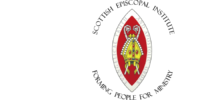SEI reports to the Institute Council (IC), its governing body, the terms of reference of which are established within the Digest of Resolutions of the General Synod. The IC in turn reports to the Standing Committee of the General Synod. SEI is directly funded by General Synod through a budget administered by the IC; SEI is subject to the same financial regulations and controls as the rest of the provincial structure of SEC. (read more about this at the Scottish Episcopal Church website here.)
The IC consists of a bishop appointed by the General Synod on the nomination of the Standing Committee, one other bishop appointed by the College of Bishops, and up to ten additional members of whom up to two need not be communicant members of the Scottish Episcopal Church. Students nominate a representative and an alternate. The Principal, Director of Studies, Director of Mixed Mode Training and Provincial Director of Ordinands (PDO) are in attendance. Student Chapter elects a Representative and an Alternate Rep. to the Council annually. The IC has responsibility for the strategic oversight of SEI and of the delivery of formation and training for authorised ministry in the SEC and other ministries as may be recognized from time to time by the College of Bishops. It is also responsible for the oversight of such funds as may be provided to it in terms of the budgets of the General Synod.
The IC appoints a Management Committee (Board of Studies) chaired by the Principal. It comprises two Associate Tutors, the Principal of the Scottish College (Congregational and United Reformed), the Director of Studies, the Director of Mixed Mode Training, plus the External Quality Advisor, the Internal Quality Nominee, and the Durham University Liaison Officer (ULO). Representatives of the IME1 and IME2 cohorts are elected by the student body.
SEI is subject to an Annual Self Evaluation (ASE). The rationale of this check, shared with Higher Education and professional sectors, is that quality assurance starts with the institution’s own judgements about its strengths, challenges, resource needs and priorities for action. Successive ASEs will build up a picture of the institution’s ongoing goal-setting and achievement.
Periodic External Review (PER) builds on ASEs by providing an external view based on investigation carried out by an independent review team with an appropriate range of skills and experience. SEI last underwent a PER in the academic year 2019-2020.
For Theological Education Institutions (TEIs) offering Durham University-validated Common Awards programmes of study, quality assurance combines academic and formational evaluation. Therefore ASE returns are reviewed by the administrative offices of both National Ministry Team (Archbishops’ Council, Church of England – and equivalent bodies in the partner churches where appropriate) and Durham University.
Every TEI operates its own Board of Examiners, in line with guidance issued by Durham. TEI Boards of Examiners are organised, administered, and chaired by the TEI but report into the Durham (Overarching) Board of Examiners. University Liaison Officers and External Examiners attend meetings of the Board of Examiners.
Durham University appoints External Examiners for each TEI. Their role is to attend a TEI’s Board of Examiners meetings in order to report on the structure, content, academic standards and teaching of the programmes being examined, review and comment on the assessment, examination, moderation and marking processes, and to contribute to the confirmation of module marks and consideration of candidates’ progression.

